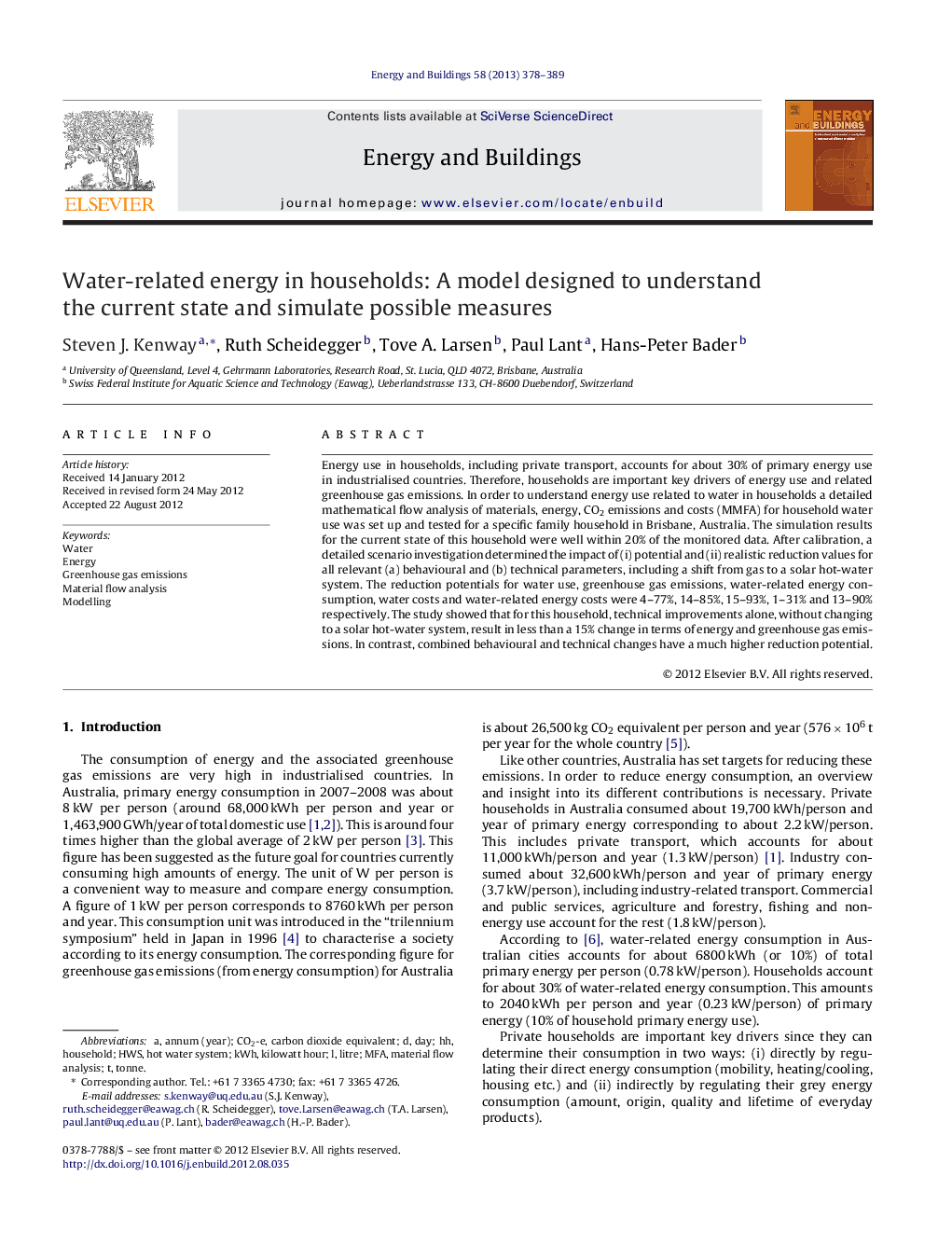| کد مقاله | کد نشریه | سال انتشار | مقاله انگلیسی | نسخه تمام متن |
|---|---|---|---|---|
| 263552 | 504077 | 2013 | 12 صفحه PDF | دانلود رایگان |

Energy use in households, including private transport, accounts for about 30% of primary energy use in industrialised countries. Therefore, households are important key drivers of energy use and related greenhouse gas emissions. In order to understand energy use related to water in households a detailed mathematical flow analysis of materials, energy, CO2 emissions and costs (MMFA) for household water use was set up and tested for a specific family household in Brisbane, Australia. The simulation results for the current state of this household were well within 20% of the monitored data. After calibration, a detailed scenario investigation determined the impact of (i) potential and (ii) realistic reduction values for all relevant (a) behavioural and (b) technical parameters, including a shift from gas to a solar hot-water system. The reduction potentials for water use, greenhouse gas emissions, water-related energy consumption, water costs and water-related energy costs were 4–77%, 14–85%, 15–93%, 1–31% and 13–90% respectively. The study showed that for this household, technical improvements alone, without changing to a solar hot-water system, result in less than a 15% change in terms of energy and greenhouse gas emissions. In contrast, combined behavioural and technical changes have a much higher reduction potential.
► We model a household in detail for water-related energy.
► Monitoring records are used to calibrate the model within 20%.
► Simulations investigate the reduction potential for water, energy and GHG emissions.
► Technical changes affect less than 15% of results without a solar hot water system.
► Combined behavioural and technical changes have a much higher reduction potential.
Journal: Energy and Buildings - Volume 58, March 2013, Pages 378–389